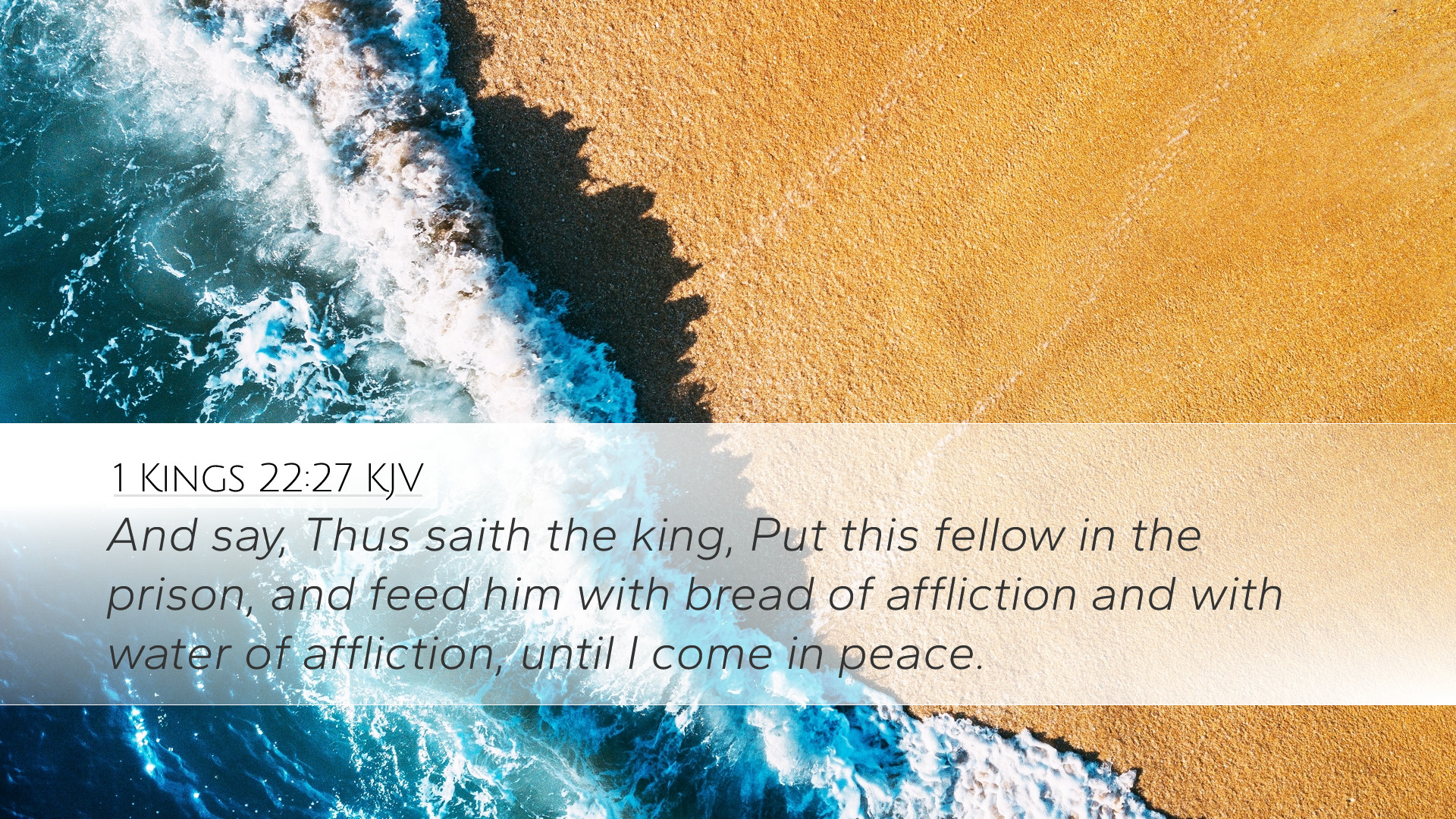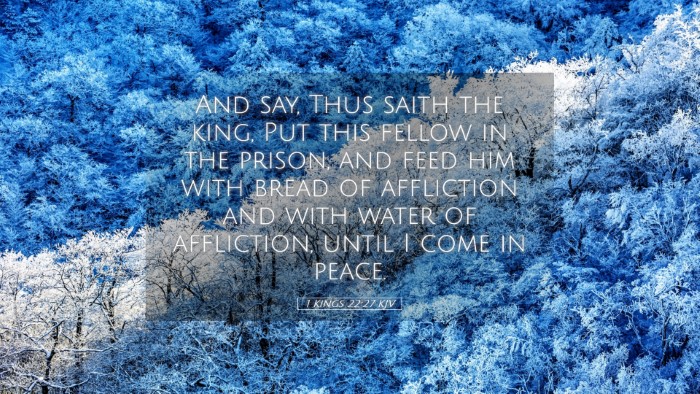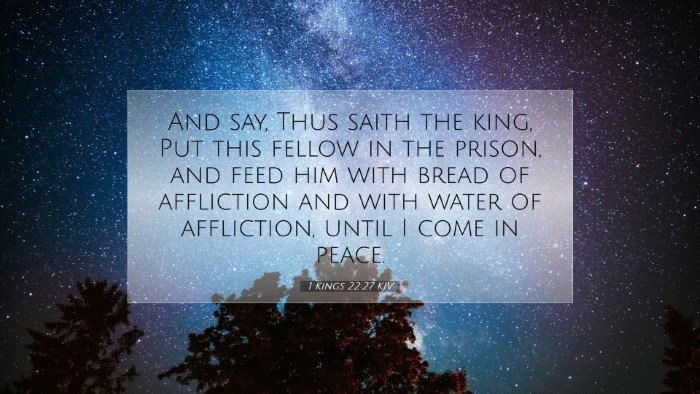Commentary on 1 Kings 22:27
Bible Verse: "And say, Thus saith the king, Put this fellow in the prison, and feed him with bread of affliction and with water of affliction, until I return in peace." (1 Kings 22:27)
Contextual Background
The passage in 1 Kings 22:27 occurs in a significant moment in biblical history. Ahab, king of Israel, seeks counsel from false prophets about waging war against Ramoth-gilead. The prophet Micaiah is summoned, who ultimately reveals a divine truth that contradicts the opinions of Ahab’s prophets. This verse specifically reflects Ahab's response to Micaiah’s prophecy and his punishment of the prophet due to the truth that he speaks.
Insights from Public Domain Commentaries
Matthew Henry's Commentary
Matthew Henry emphasizes the boldness of Micaiah in the face of opposition. He notes that prophets of the Lord often faced persecution for delivering messages that were unpopular. Henry reflects on the grievous nature of Ahab's decision to imprison Micaiah, stating that it highlights the spiritual blindness of Ahab and his inclination to silence the truth. The "bread of affliction and water of affliction" stands as a metaphor for the hardships and scorn faced by those who proclaim God’s word in an unwelcoming environment. Henry posits that this act is symbolic of how the truth is often treated in the world.
Albert Barnes' Notes on the Bible
Albert Barnes provides a commentary that delves into the theological implications of the king's order. He notes that the command to imprison Micaiah not only reveals Ahab's character but serves as a wider commentary on the rejection of divine prophecy. Barnes highlights the significance of the phrase "until I return in peace," suggesting that Ahab sought to remain in control and expected a favorable outcome devoid of opposition. This encapsulates the mentality of those who dismiss divine guidance in favor of their own desires. Barnes suggests that this arrogance ultimately leads to Ahab's downfall and serves as a cautionary tale for all leaders.
Adam Clarke's Commentary
Adam Clarke offers a thorough analysis of the motives behind Ahab’s actions. Clarke notes that the imprisonment of Micaiah reflects a desperate attempt to silence the voice of God that contradicts Ahab's ambitions. He dives into the language of the verse, pointing out that the "bread of affliction" symbolizes a meager existence and a form of punishment aimed at diminishing the dignity of Micaiah. This element of Clarke's commentary expresses a profound understanding of the sociopolitical dynamics at play during this historical account, emphasizing the need for prophets to endure despite persecution.
Theological Reflections
This verse provides rich material for theological reflection. The character of Ahab serves as a warning against the perils of arrogance and the rejection of divine truth. The plight of Micaiah is a testament to the challenges believers face when standing up against prevailing narratives that oppose God’s will. Scholars and theologians can draw parallels from this text to various contemporary issues where spiritual leaders face imprisonment, both literal and metaphorical, due to their convictions.
Lessons for Modern Believers
- The Cost of Truth: Like Micaiah, those called to proclaim God's word may face persecution. The price of faithfulness is often high.
- The Responsibility of Leadership: Ahab’s actions remind leaders of their obligation to heed divine wisdom rather than personal ambition.
- Endurance in Suffering: Micaiah’s imprisonment illustrates that believers can find strength and purpose even in affliction.
- The Power of the Prophetic Voice: The importance of prophetic voices in society cannot be understated. They challenge the status quo and call for repentance.
Conclusion
1 Kings 22:27 encapsulates critical themes of truth, power, and the cost of prophetic ministry. Through the insights of various commentaries, we glean understanding of human tendencies to silence discomforting truths and the divine call to perseverance in faith, reflection on spiritual conviction, and moral integrity regardless of societal pressures. The narrative invites readers to consider their own responses to God’s truth and the implications of their leadership.


